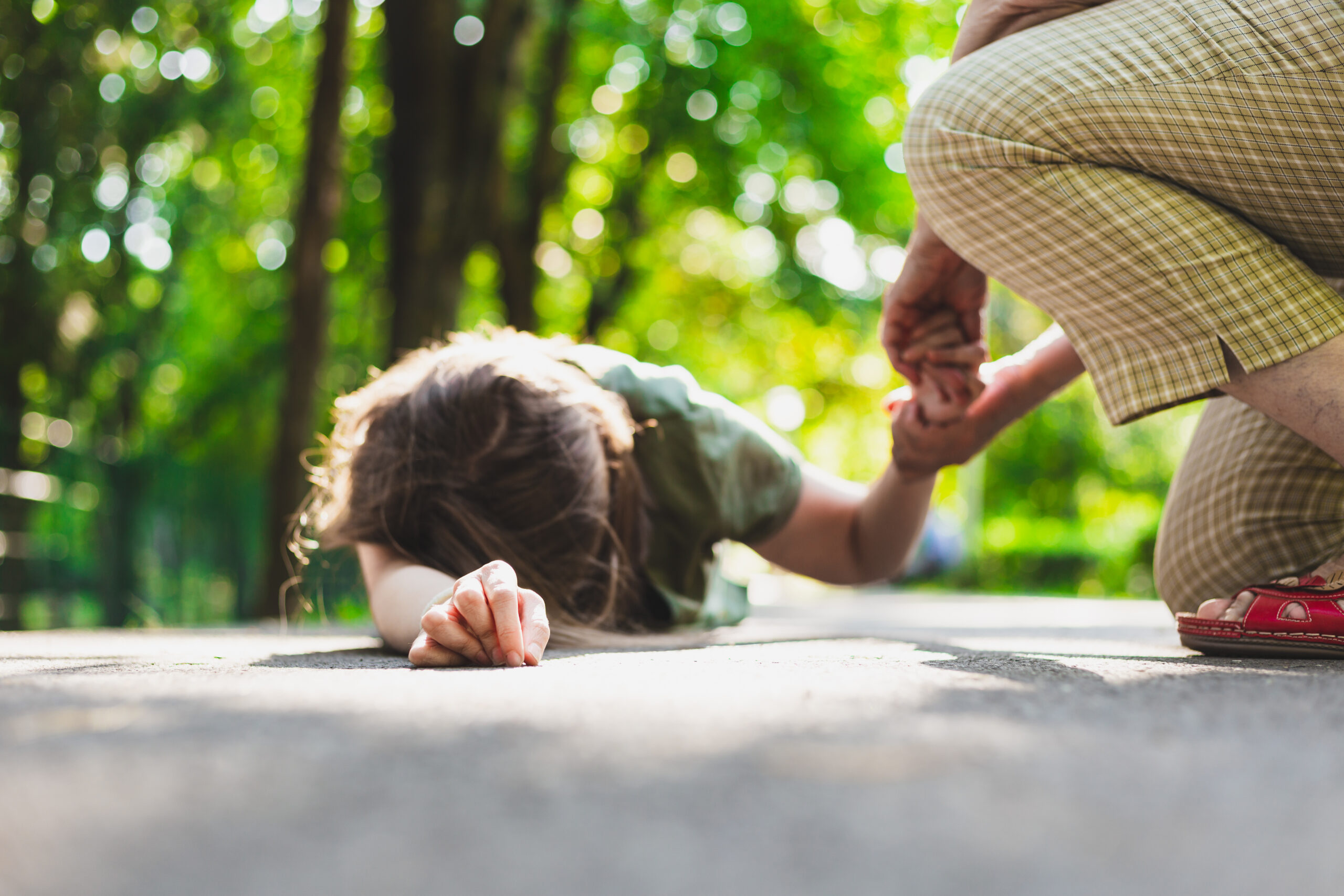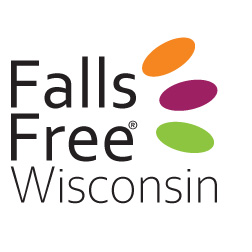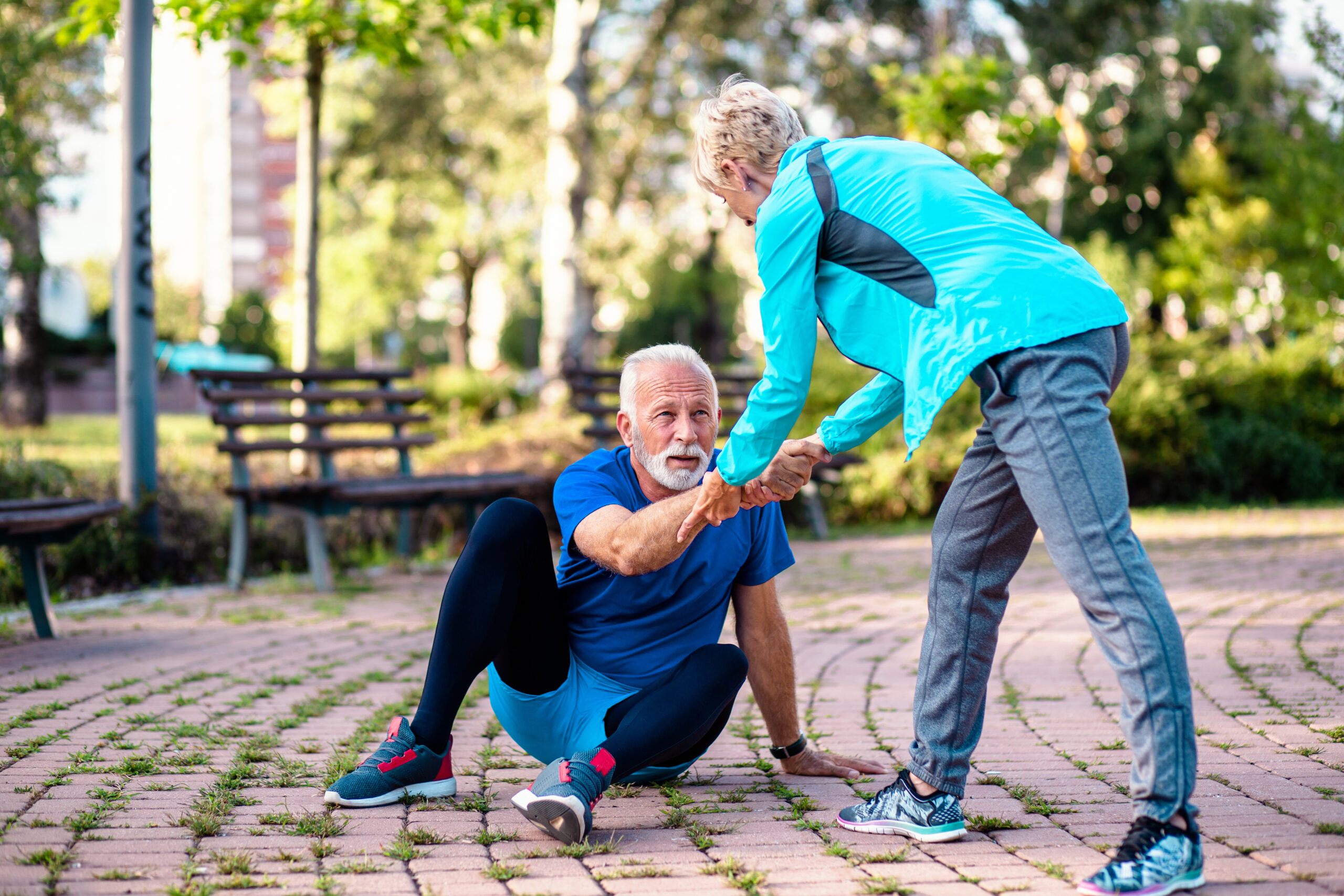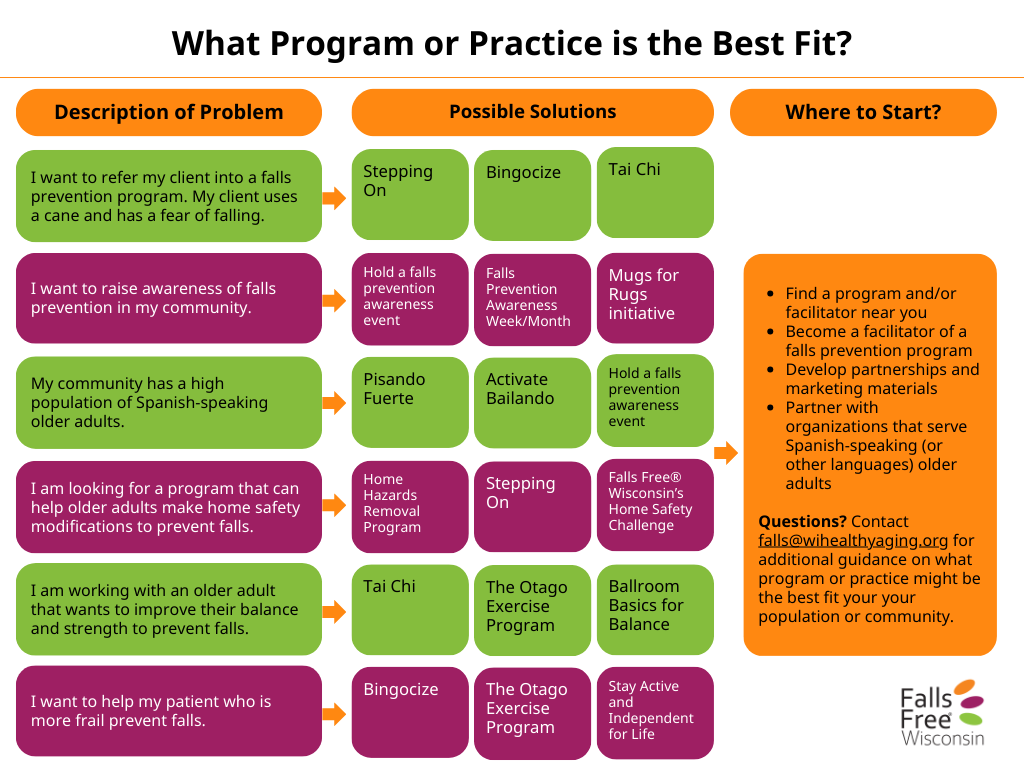Learn what to do if you experience a fall and who to call for help if you need it.
Deputy Chief Jeff Dostalek with the Fitch-Rona EMS District recently sat down with the Falls Free® Wisconsin Coalition and shared what older adults can do if they fall and need help getting up and how to prevent falls and stay independent. If you have experienced a fall, you’re not alone. According to the Centers for Disease Control and Prevention (CDC), more than 1 in 4 older adults (ages 65+) have a fall each year and 1 out of every 10 falls causes an injury. When a fall occurs and someone needs help getting up or medical care, local fire or EMS departments are trained to respond. Learn from Deputy Chief Dostalek what happens during the process.
Who can I call if I fall, but need help getting up?
“We encourage you to call 911 and we will respond to your residence to help you get up off the floor and put you in a place that’s comfortable for you. We do not encourage you to call the fire stations directly, simply because we don’t know if there will be people there. So, 911 is always the best option [even if you] just need assistance getting up off the floor.”
What happens when you get a call for someone that needs help getting up?
“If there’s any sort of injury, we ask a lot of questions, because we want to make sure that the fall was just an accidental thing and not something medically that might have caused the fall. So, we do a patient assessment. If somebody is just like, ‘I just need help getting up’, we will do that, grab some demographic information, and we’ll be on our way.”
Deputy Chief Dostalek shared that there may be a fee associated with these types of calls but “the caveat is we do not want people not to call us… we want to make sure that you’re safe”.
What are some common causes of falls that you see?
Deputy Chief Dostalek shared that some of the common causes of trips and falls in the residence include “uneven surfaces or concrete, transitions like going from linoleum or tile to carpeting, extension cords that run along the floor, clutter, ice and snow, and not using the handrail”.

What would you tell someone who is worried they will lose their independence if they call for help?
“Where we find people that tend to lose their independence, even for a short period of time, are those that either break a hip or break an arm or have a head injury and they have to stay out of the home to do some sort of rehab. Our main focus is for that not to happen. If you do fall and you do call and we come in and say, ‘We’d really like to have somebody come out and do a home assessment’, allow us to do that… it gives us an opportunity to show you some of the areas that are potential fall hazards, and we fix those before you actually do fall and hurt yourself.”
Deputy Chief Dostalek also shared how a loved one’s fall impacted him personally. “My mom, God rest her soul, was the poster child for refusing to do things that her paramedic son asked her to do, to not fall and get hurt. And she fell and got hurt and broke her hip. She was in the hospital for a while and then rehab… I use her as an example so that people don’t follow that and really pay attention to the safety things that are out there… to help you stay independent.”
What can I do to prevent future falls?
There are many things that can be done to prevent falls, as Deputy Chief Dostalek highlighted:
- If you do have mobility issues, use a walker or cane… even if it is around your apartment or your home
- Do a general scan of things you could potentially fall over like throw rugs, cords, extension cords, and uneven surfaces in your home
- Take your time… and use safety precautions that are available to you like handrails
- Physical activity – walking, Tai Chi, classes for balance, flexibility, and strength
- Wearing sensible shoes that are slip resistant
- Work with your healthcare provider to do a medication reconciliation [review]. Have your provider go through with you all the medications you have and dosages, making sure you’re taking them as appropriate.
Falls prevention is for everyone and you have a big role to play in reducing your risk of a fall. Falls Free Wisconsin can help. Visit FallsFreeWI.org today and take action to stay safe and independent!


